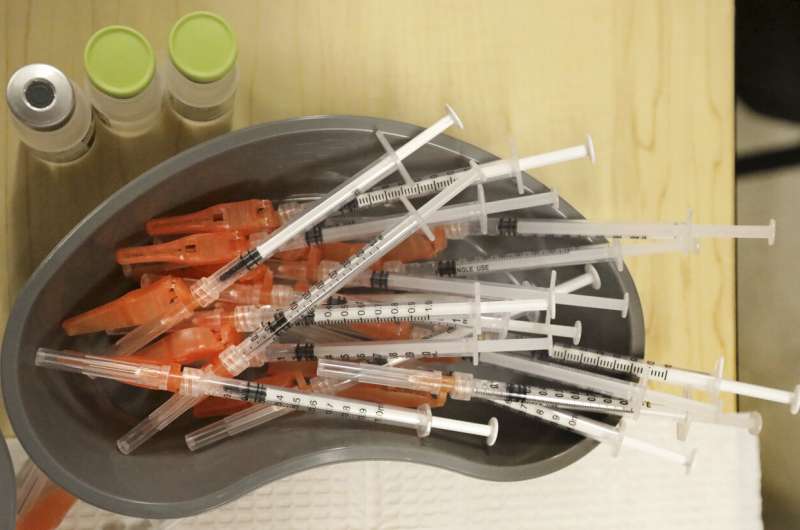
While many Americans are trying to move on with their lives after two years of the COVID-19 pandemic, U.S. health officials are debating the best way to use vaccines to stay ahead of the coronavirus.
A panel of U.S. vaccine experts was meeting Wednesday to discuss key questions for future COVID-19 booster campaigns. The Food and Drug Administration’s vaccine advisers won’t make any binding decisions during the virtual meeting, but their advice could shape the government’s approach for years to come.
FDA vaccine chief Dr. Peter Marks told reporters last week that it wouldn’t be surprising if the agency authorized another booster dose in the fall to protect most Americans against the latest coronavirus mutations. He opened Wednesday’s meeting by cautioning that waning vaccine protection, new variants and colder weather later this year could raise the risk of more surges.
“All that taken together makes us conclude that a general discussion of booster vaccination against COVID-19 is warranted at this time so that we can potentially intervene,” Marks said.
Some of the key questions for the panel:
HOW SHOULD THE U.S. DECIDE WHEN TO LAUNCH FUTURE ROUNDS OF BOOSTER SHOTS? WHO SHOULD GET THEM?
Last week, the FDA authorized an extra Pfizer or Moderna shot for anyone 50 or older and for some younger people with severely weakened immune systems. It’s an effort to get ahead of another possible surge.

Only about half of Americans eligible for a third shot have gotten one. And some independent experts disagree about the need for even that additional protection in healthy individuals, due to limited evidence of the benefit or how long it might last.
The last U.S. wave was driven by the omicron variant. During that surge, two doses were nearly 80% effective against needing a ventilator or death—and a booster pushed that protection to 94%, federal scientists have reported. COVID-19 cases have dropped to low levels in the U.S., but health officials are warily watching an omicron sibling that now accounts for most cases.
WHAT’S THE PROCESS FOR UPDATING VACCINES TO ADDRESS NEW VARIANTS?
All the COVID-19 vaccines now used in the U.S. are based on the original coronavirus version that emerged in late 2019. Updating the vaccines will be a complex task, requiring coordination between the FDA, manufacturers and global health authorities.
The process for updating annual flu vaccines offers one possible model for dealing with mutations. The FDA panel is expected to discuss the strengths and weakness of adopting such an approach.
Twice a year, World Health Organization experts recommend updates to flu vaccines to target emerging strains. The FDA then brings those recommendations to its own vaccine panel, which votes on whether they make sense for the U.S., setting the stage for manufacturers to tweak their shots and begin mass production.
Source: Read Full Article
